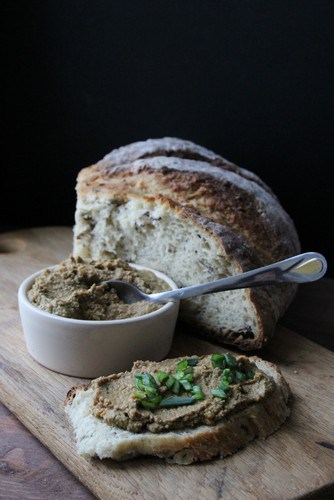What exactly is a Mediterranean diet?

The Mediterranean diet is not a recent term at all, and it is that since the 1950s, the first studies around it were published; however, from those years until now has it undergone certain modifications in terms of the foods that compose it, and why not? If with the passage of time the jobs, cities, countries, in short, everything changes and with it, of course, the eating patterns. The Mediterranean diet is considered one of the best healthy diets.
Why has the popularity of the Mediterranean diet returned?
If it was made known in 1950, it is curious that it was talked about with some interest in the middle of 2019, but this has a justification; it turns out that for this year, this diet has been chosen as the diet of the year, yes among approximately 40 diets, The Mediterranean diet stood out for its health benefits, especially in its role in the prevention of cardiovascular diseases and in effective weight loss in the short and long term.
What is the Mediterranean diet?
The Mediterranean diet could be defined as a food plan, a lifestyle based on the food tradition of Mediterranean countries such as Spain, Greece, and Portugal, among others, what Mediterranean countries have in common are the foods that make up the basis of their diet, although from one country to another the foods vary, there are some such as olive oil, fish, etc. which belong constant throughout the Mediterranean.[1]
What Basic Foods make up the Mediterranean Diet?
- Vegetables
- Vegetables
- Fruit
- Cereals
- Fish
- White meats
- Olive oil
- The vegetables
- vegetables
The Vegetables
From a young age, they try to instill the consumption of vegetables and legumes for their broad health benefits, but it is not until you grow up that you objectively notice the benefits of these foods.
The Mediterranean diet has a wide consumption of green foods, this is due to its high content of vitamins and minerals, You must remember that these substances are not synthesized by the body; they are only obtained from the diet, that is why a rich diet in plant foods goes far beyond a recommendation, it is a necessity.
Fruit
Fruits are also a source of vitamins and minerals while also providing sugars, in fact, many nutritionists recommend that dessert after lunch should be a serving of fruit.
Cereals
They represent the carbohydrates in this diet, being cereals and grains these carbohydrates tend to be complex, this translates into a lower glycemic index and greater satiety. Wholemeal flours and nuts are present.
Fish
It is one of the main meats in this diet, the Mediterranean basin favors a wide variety of fish, which is why they are very present in the Mediterranean diet, as well as shellfish and other marine products.
Beyond the availability of this type of protein, there is its biological value, fish in general is rich in Omega-3, vitamin B and D, calcium, iodine and other nutrients, these are increased in fish such as sardines, tuna, herring , salmon among others. A portion is approximately 100 to 150gr, the consumption of 3-4 portions per week is recommended.[2]
White meats
They are represented by meat of avian origin, this is because in their composition they have a much lower saturated fat content compared to red meat, a good example of this is chicken meat, especially those that are raised on local farms, so they are free of hormones and are fed in a more natural way, other options are turkey and game meat such as rabbit.
Olive oil
Along with vegetables, it is the representative food of the Mediterranean diet, it is proposed as the most allowed fatty element within this plan, thus avoiding saturated and hydrogenated fats such as margarines. The ideal olive oil is extra virgin, it is the one that has the greatest benefits, although its cost is a little higher, keep in mind that you should use it in moderation because, although it is very healthy, it provides calories, for every 10ml there are up to approximately 100kcal. [3]
Benefits of the Mediterranean Diet
As mentioned at the beginning, this is more than a diet, and it has even been recognized as Intangible Heritage of Humanity by UNESCO. But beyond the acknowledgments and evaluations that it may have, it must be analyzed objectively:[4]
The consumption of vegetables provides antioxidants such as polyphenols, carotenoids and vitamins not only necessary for a healthy weight but also as cofactors in many metabolic reactions, such as vitamin B, which is essential for the nervous and muscular systems.
Fish, despite not being the most consumed meat worldwide, has innumerable benefits, but among them are the reduction of LDL cholesterol (bad cholesterol) and favoring the increase of HDL (good cholesterol, which translates into less fat obstructing the arterial vessels, in addition to all that, fish consumption is associated with weight loss and low glycemic levels, which has made it a protective factor against diabetes.
Thanks to the presence of olive oil in the Mediterranean diet and its high content of monounsaturated fatty acids such as linoleic acid, not only is there a reduction in cholesterol, but this acid has a hypotensive effect, which is why it is beneficial for patients with arterial hypertension. In addition to this, it has an effect on insulin, reducing the resistance of tissues to the action of this hormone.
Risks of the Mediterranean diet
In general, it does not represent any health risk; however, as every plan carries risks and benefits, within the aspects to take care of are:
The consumption of cereals such as wheat is associated with episodes of intolerance to gluten not associated with celiac disease, it is not very common but it can occur.[5]
The consumption of certain fish (bluefin tuna, shark) is not recommended in pregnant women and children due to possible mercury content, so limiting their consumption is best.
Although there are risks to consider, the benefits of the Mediterranean diet take precedence, and that is that achieving sustained weight loss over time, plus an improvement in cardiovascular health as well as in physical performance and quality of life in general represent a gain very substantial.
What is a typical meal of the Mediterranean diet? (Extracted from the Book Mediterranean Diet. 41 Recipes to Live Healthy and Gain Longevity. 1 Week Meal Plan)
Lunch: Bread Spread With Tuna Cream

Servings: 4
Preparation time: 15 minutes
Cooking time: none
Ingredients
- 2 cans of tuna (170 grams) strained
- 4 tablespoons cream cheese
- 1 tablespoons mayonnaise
- 3 tablespoons Greek yogurt
- 1 stalk of chopped celery
- 1 chopped green onion
- 1 tablespoon lemon juice
- 1 tablespoon dill
- 4 Slices of whole wheat bread
Preparation
- In a bowl combine all the ingredients and mix well.
- Cut the bread into slices and spread the bread with this mixture

Learn more about the Mediterranean diet
Mayo Clinic Minute: Mediterranean Diet Fast Facts
Mediterranean Diet Has Huge Health Benefits, New Study Finds | The New York Times
Mediterranean Diet Recipes
Recommended

References
- https://medlineplus.gov/spanish/ency/patientinstructions/000110.htm
- https://fundaciondelcorazon.com/corazon-facil/blog-impulso-vital/2316-el-pescado-imprescindible-en-la-dieta.html
- https://www.botanical-online.com/alimentos/omega-9-alimentos-ricos
- https://www.nutricionhospitalaria.org/index.php/articles/02133/show
- https://www.ncbi.nlm.nih.gov/pmc/articles/PMC4003198/

Me encanta cocinar y escribir, tengo un Certificado de Nutrición de Inicio y un diploma de Nutrición Completa acreditado por CTAA y una Certificación de Entrenador de Salud de Nutrición Keto. Creo firmemente que comer sano es la clave para vivir una mejor calidad de vida. He tomado un curso de Terapia Nutricional que me ha dado las bases para comer saludablemente.









